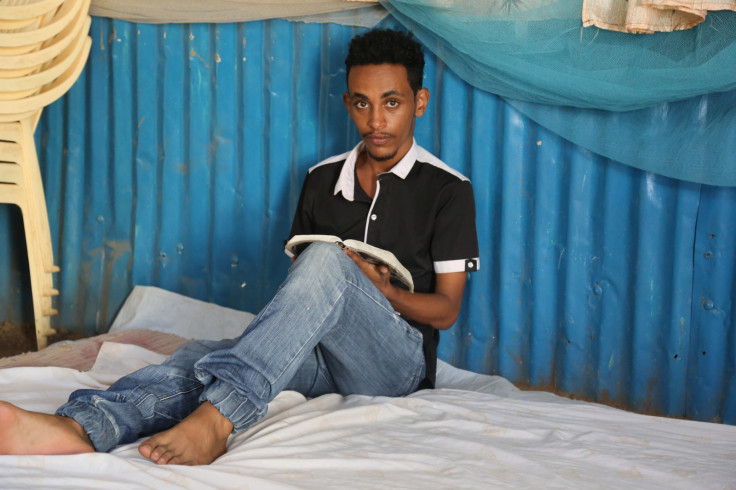Trump refugee ban a psychological blow for hundreds of vulnerable Somalis in Kenya
IBTimes UK hears of the devastating impact of President Trump's ban on refugees with protection needs.

Refugee rights organisations have condemned President Donald Trump's "disruptive" ban on refugees as a psychological blow for hundreds of Somali refugees in Kenya, who were about to fly to the United States to start new lives under a resettlement programme.
While the US is the top resettlement country in the world accepting over 50 per cent of all cases, Trump's controversial executive order means that refugees and people from seven Muslim majority countries including Somalia are now temporarily denied US refugee status or visas for 120 days.
Hours before the ban came into force, hundreds of Somali refugees and children packed their suitcases, men closed or abandoned their little businesses and emptied bank accounts before leaving the Kenyan dusty sprawling camps of Kakuma and Dadaab with flights already booked, ready to start a new existence. However, they were told they could no longer travel.
The United Nations refugee agency (UNHCR) said on 31 January that some 13,000 Somali refugees had completed their resettlement vetting process with the US Citizen and Immigration Services this year and are now directly affected.
"We are very concerned about the ban. Several hundreds of Somalis who are ready to go are immediately affected by this," Neil Turner, Norwegian Refugee Council (NRC)'s Kenya country director told IBTimes UK in Nairobi.
"Given the length of the time refugees take to go through the resettlement process (up to 10 years) one can imagine that being told at the last minute that you cannot travel, must be crushing," Turner said, highlighting the "immense" psychological effect on the refugees. "They have spent years getting to this place before boarding that plane."
Under such programme, vulnerable refugees whose life, liberty, safety, health and fundamental rights are at risk at home or in neighbouring countries are flagged by the United Nations refugee agency (UNHCR).
The impact of the ban is as specially disruptive, as most resettlement cases "require resettlement protection attention", according to Andrew Maina Mwangi, programme officer for the communication, research and monitoring programme for the Refugee Consortium of Kenya (RCK).
These include women and girls at risk of sexual or domestic violence, survivors of violence and/or torture, children at risk, family reunification or medical needs.
"The ban is very disruptive, especially for refugees that cannot be treated here but have protection needs," told IBTimes UK in Nairobi, condemning the "huge challenge" the disruptive ban would cause for Somalis and Kenya.
RCK is currently looking at what response to give to the policy with local and international partners. "We do expect that, as we go into February, we have a number of cases coming up," Mwangi added.
© Copyright IBTimes 2025. All rights reserved.






















